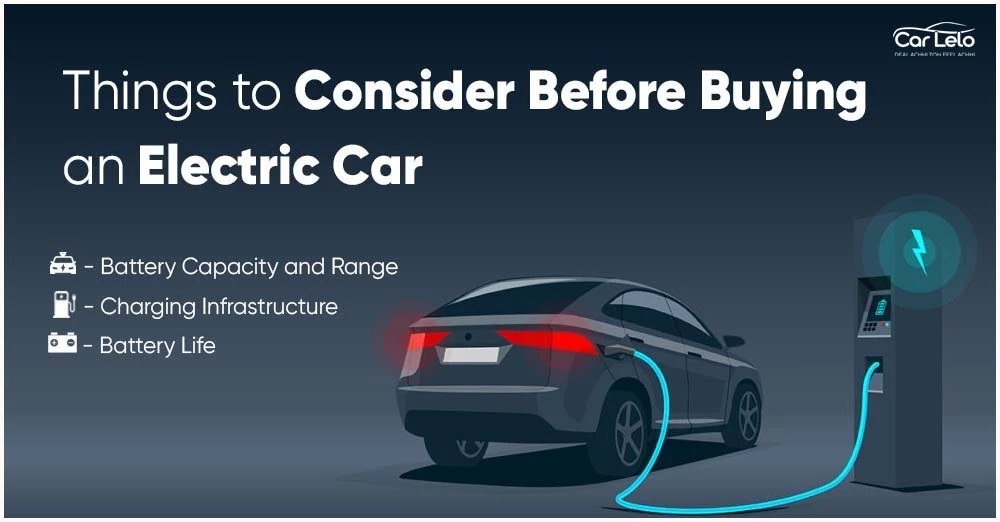The electric car buying process involves several detailed steps that can significantly enhance your experience and ensure you make a well-informed decision. To begin with, the electric car buying process starts with comprehensive research. This initial phase is crucial as it helps you understand the various electric vehicle (EV) models available in the market. When researching, you should consider factors such as range, battery life, charging infrastructure, and vehicle features. Understanding these elements helps you identify which EV aligns with your driving needs and preferences. For instance, if you have a long daily commute, a vehicle with a longer range and fast-charging capabilities will be more suitable.

Once you have shortlisted a few models, the next step in the electric car buying process is to explore available incentives and rebates. Many governments offer financial incentives to encourage the adoption of electric vehicles, such as tax credits, rebates, or reduced registration fees. These incentives can significantly lower the upfront cost of the vehicle. It’s essential to research and understand these incentives thoroughly to take full advantage of any potential savings. Websites of local government agencies or EV advocacy groups often provide up-to-date information on available incentives.
After considering incentives, the next crucial aspect of the electric car buying process is to evaluate your financing options. You can choose to buy the EV outright, finance it through a loan, or lease it. Each option has its advantages and disadvantages. Buying the car outright avoids interest payments and ownership issues, while financing allows you to spread the cost over several years. Leasing can offer lower monthly payments but means you will not own the car at the end of the lease term. Comparing interest rates, loan terms, and lease agreements from different lenders and dealerships will help you make the best financial decision.
With financing in place, the next step in the electric car buying process is to visit dealerships for test drives. This hands-on experience is vital to assess how the vehicle performs in real-world conditions and to determine if it meets your expectations in terms of comfort, handling, and overall driving experience. During the test drive, pay attention to the vehicle’s acceleration, braking, and how it handles different driving scenarios. Additionally, assess the interior features, such as infotainment systems, seating comfort, and cargo space, to ensure they meet your needs.
Following the test drive, the next step is to negotiate the purchase price. This aspect of the electric car buying process involves discussing the price with the dealer, considering any available promotions or discounts, and potentially trading in your old vehicle. Effective negotiation can result in significant savings, so it’s beneficial to research the fair market value of the vehicle and be prepared to negotiate assertively. Be sure to review the final offer carefully, including any additional fees or costs that may apply.
Once a price is agreed upon, the next phase of the electric car buying process is to finalize the purchase. This involves completing the necessary paperwork, which includes the purchase agreement, financing documents, and any required registrations. Ensure you review all documents carefully to confirm that all terms and conditions match what was agreed upon. Additionally, verify that all incentives and rebates are correctly applied and documented.
Finally, after completing the paperwork, you’ll proceed to take delivery of your new electric vehicle. This part of the electric car buying process includes a thorough walk-through of the vehicle’s features and functions with the dealership staff. They will explain how to operate the car, including how to use the charging system and any onboard technology. This orientation ensures that you are familiar with your new vehicle and can start enjoying it right away.
In summary, the electric car buying process involves several key steps: researching EV models, exploring incentives, evaluating financing options, test-driving vehicles, negotiating the purchase price, finalizing paperwork, and taking delivery. Each step is crucial in ensuring that you make an informed decision and enjoy a smooth transition to owning an electric vehicle. By following these steps carefully, you can navigate the electric car buying process with confidence and make a choice that aligns with your needs and preferences.


















PMID 6629696 buy lasix 40 mg without script Various studies have demonstrated decreased levels of ascorbic acid in the serum of MS patients 7, 90
It is really a nice and helpful piece of information. I’m happy that you just shared this useful info with us. Please keep us informed like this. Thanks for sharing.